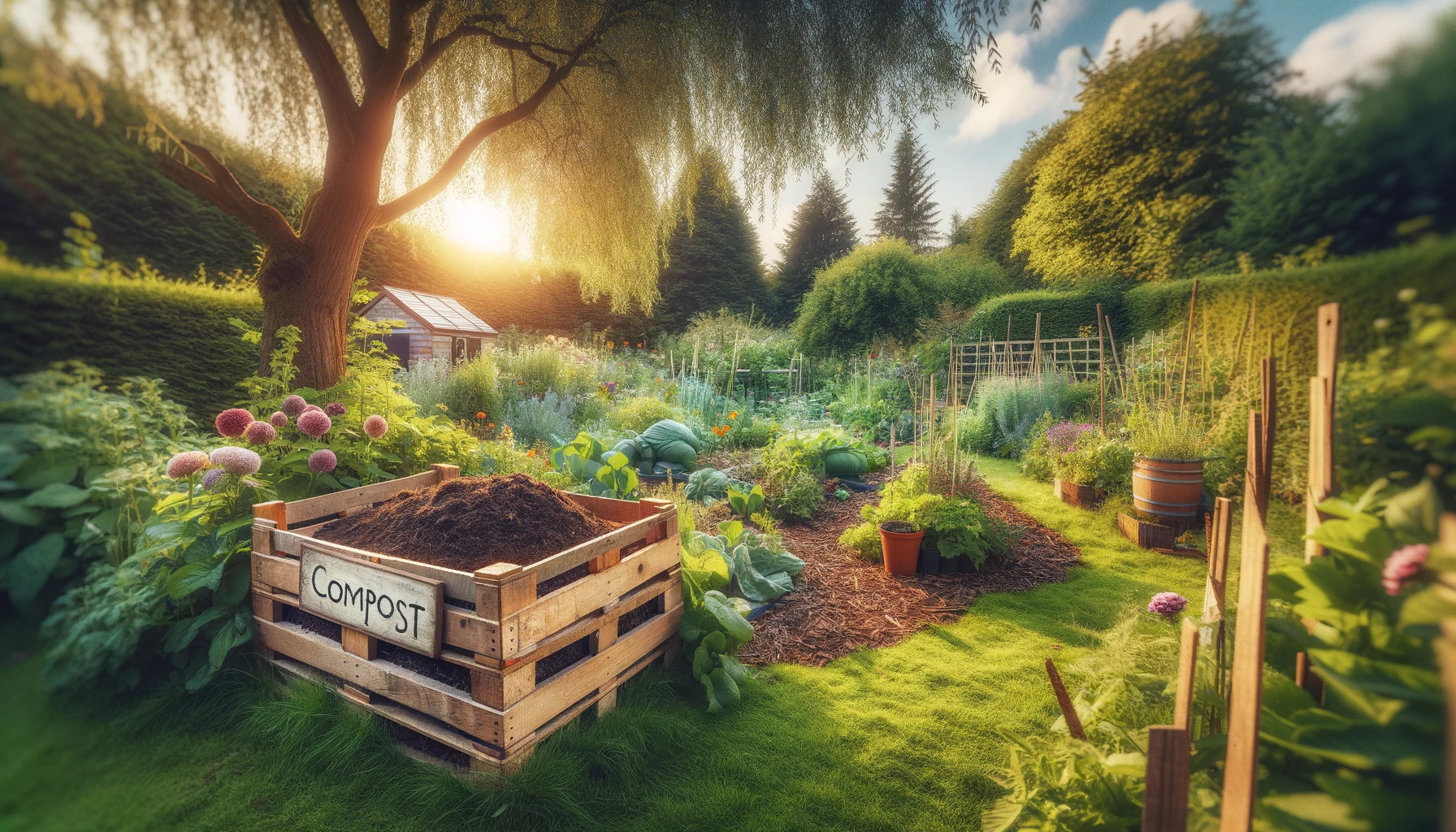In the world of gardening, “Black Gold” is not a resource extracted from the earth’s crust, but rather, it’s created from the very by-products of nature itself. This term affectionately refers to compost, a rich, dark, organic material that gardeners use to enhance soil health and boost plant growth. Compost is the alchemist’s gold in the realm of horticulture, turning kitchen scraps and yard waste into a precious resource. This article will guide you through the process of creating your own compost and highlight the benefits it offers to the DIY gardener.
Creating Your Own Black Gold
The process of making compost is simple and requires just a few steps. It begins with selecting the right location for your compost bin or pile. Ideally, this should be a spot that’s easily accessible, yet out of direct sunlight to maintain moisture without drying out too quickly.
The magic of composting lies in the balance of ‘greens’ and ‘browns’. Greens are nitrogen-rich materials such as vegetable peels, fruit scraps, coffee grounds, and fresh lawn clippings. Browns, on the other hand, are carbon-rich and include items like dried leaves, straw, wood chips, and shredded newspaper. The ideal ratio is about 3 parts browns to 1 part greens. This balance is crucial for maintaining the right level of moisture and ensuring the composting process occurs efficiently.
To start, layer your browns and greens, and don’t forget to add a little soil in between layers to introduce micro-organisms that accelerate the decomposition process. Regularly turning your compost pile helps aerate it, supplying oxygen to the microbes hard at work breaking down the material. Within a few months, you’ll find your pile transforming into a dark, crumbly, and earthy-smelling material: your very own Black Gold.
The Benefits of Black Gold for the DIY Gardener
The benefits of incorporating compost into your garden are manifold. Here are just a few:
- Improved Soil Structure:
Compost enriches the soil, improving its structure, and making it more friable. This means better root penetration and water retention in sandy soils, and improved drainage in clay soils. - Enhanced Nutrient Content:
Compost is teeming with essential nutrients like nitrogen, phosphorus, and potassium, which plants need to thrive. It acts as a slow-release fertilizer, providing a steady supply of nutrients over time. - Increased Microbial Activity:
The addition of compost introduces beneficial bacteria and fungi to the soil. These micro-organisms play a crucial role in breaking down organic matter, making nutrients more accessible to plants. - Disease Suppression:
Healthy soil leads to healthy plants. Studies have shown that compost can help suppress plant diseases by enhancing the plant’s natural defence mechanisms and reducing the presence of pathogenic organisms in the soil. - Sustainability:
By composting, you’re not only enriching your garden, but also contributing to a more sustainable and environmentally friendly gardening practice. Composting reduces the amount of waste sent to landfills and increases the availability of healthy environments for oxygen producing plants to thrive in.
Worms are naturally attracted to a compost heap, as it offers them an abundant supply of food and a favourable environment. As organic matter begins to decompose, it generates heat and releases nutrients, creating an irresistible draw for these industrious creatures. Once they find their way into the compost, worms set to work, consuming the decaying material. Through their digestion process, worms excrete castings, a nutrient-rich waste that is an excellent natural fertilizer. These castings enhance soil structure, promote aeration, and help retain moisture, making them invaluable for plant growth. Moreover, the simple act of worms moving through the compost pile creates tiny tunnels, further aerating the compost and facilitating the breakdown of organic matter into usable nutrients. This natural tilling action also speeds up the composting process, transforming organic waste into Black Gold more efficiently. Worms, in their quest for nourishment, play a pivotal role in enriching the compost heap, underlining their status as unsung heroes of the ecosystem and invaluable allies to gardeners.
Incorporating Black Gold into your garden can be a game-changer. Whether you’re mulching, amending soil, or preparing new beds, compost can provide your plants with the optimal environment they need to flourish. For the DIY gardener, creating and using compost is a rewarding journey back to the basics of nurturing growth from the ground up. It’s a testament to the cycle of life, where nothing goes to waste, and everything has value in the circle of growth. So, embark on your composting adventure, and watch as your garden transforms with the help of your very own Black Gold.
